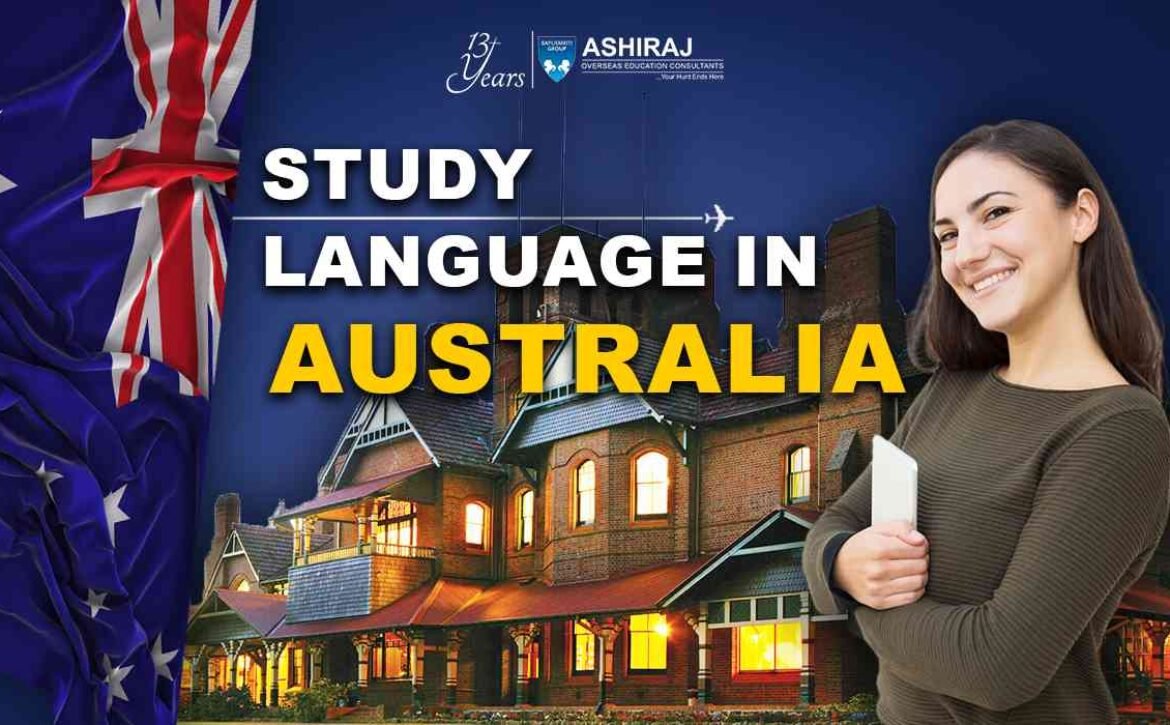
Language in Australia
Language in Australia is a dynamic and diverse aspect of its cultural landscape, reflecting the nation’s rich multicultural heritage and indigenous linguistic traditions. From Indigenous Australian languages to English, and a plethora of immigrant languages, the linguistic tapestry of Australia encapsulates a spectrum of dialects, accents, and vernaculars. The coexistence of various languages underscores the country’s commitment to multiculturalism and inclusivity, shaping its identity on both national and global stages. Language serves as a medium through which Australians communicate, express cultural identity, and foster social cohesion.
In Australia, the exploration of language extends beyond mere communication; it embodies historical narratives, indigenous knowledge systems, and contemporary societal dynamics. Understanding the linguistic diversity within Australia sheds light on the complexities of its cultural mosaic and underscores the importance of language preservation and revitalization efforts. Language in Australia encapsulates a multifaceted narrative, enriching the nation’s cultural fabric while offering insights into its past, present, and future trajectories.
Why Study Language in Australia?
- Cultural Diversity: Australia is a melting pot of cultures, reflected in its diverse linguistic landscape. Studying language in Australia provides a unique opportunity to explore indigenous languages, immigrant languages, and variations of English.
- Global Perspective: With its strategic location in the Asia-Pacific region, studying language in Australia offers insights into international relations, trade, and cultural exchange, enhancing global perspectives.
- Career Opportunities: Proficiency in multiple languages is increasingly valued in the global job market. Language study in Australia equips individuals with valuable linguistic skills, opening doors to diverse career opportunities in sectors such as tourism, international business, diplomacy, and education.
- Indigenous Heritage: Australia’s indigenous languages hold immense cultural significance. Studying indigenous languages provides a deeper understanding of Aboriginal and Torres Strait Islander cultures, fostering respect and appreciation for Australia’s rich heritage.
- Academic Excellence: Australian universities are renowned for their language programs, offering high-quality education with cutting-edge research opportunities. Studying language in Australia ensures access to world-class academic resources and expert faculty.
- Personal Enrichment: Language study enhances cognitive abilities, communication skills, and cultural awareness. Immersing oneself in the linguistic diversity of Australia enriches personal growth and fosters lifelong learning.
Language in Australia embodies a wealth of cultural, academic, and professional opportunities, making it an ideal destination for language study.
Top Universities to Study Language in Australia
University | QS World University Ranking 2023 | Type of University | Average Annual Fees (AUD) | Programs Offered |
University of Melbourne | 25 | Public | $30,000 | Linguistics, Language Studies, Translation |
Australian National University | 30 | Public | $28,000 | Indigenous Languages, English Language Teaching |
University of Sydney | 40 | Public | $32,000 | Linguistics, Modern Languages, Intercultural Communication |
University of Queensland | 45 | Public | $29,000 | Language Education, Applied Linguistics, Language Pathology |
University of New South Wales | 50 | Public | $31,000 | TESOL (Teaching English to Speakers of Other Languages), Bilingualism, Language Disorders |
The top universities in Australia for language studies offer a diverse range of programs catering to various linguistic interests and career paths. With a strong emphasis on research and academic excellence, these institutions provide an ideal environment for students to pursue their language-related aspirations. From linguistics and translation to language education and indigenous language revitalization, students can explore a multitude of disciplines within the realm of language in Australia. Moreover, these universities offer a blend of theoretical knowledge and practical skills, preparing graduates for success in both academic and professional spheres. With competitive average annual fees and access to world-class faculty and resources, studying language in Australia at these top universities is a rewarding investment in one’s academic and personal growth.
Course Curriculum for Language in Australia
- Linguistics Fundamentals: The curriculum typically begins with foundational courses covering phonetics, phonology, morphology, syntax, and semantics, providing students with a comprehensive understanding of language structures and systems.
- Language Acquisition Theories: Students delve into theories and research surrounding how individuals acquire languages, including both first and second language acquisition processes.
- Cultural Context: Courses often incorporate the cultural contexts of languages, exploring how language is intertwined with cultural identity, social norms, and historical developments.
- Language Teaching Methods: For students pursuing language education or TESOL (Teaching English to Speakers of Other Languages), the curriculum includes courses on language teaching methodologies, lesson planning, classroom management, and assessment strategies.
- Specialized Tracks: Many programs offer specialized tracks or electives in areas such as translation and interpreting, bilingualism, language disorders, indigenous languages, or computational linguistics, allowing students to tailor their studies to their interests and career goals.
- Practical Experience: Some programs incorporate practical components such as internships, teaching practicums, or research projects, providing hands-on experience and opportunities for application of theoretical knowledge.
The course curriculum of language in Australia is designed to provide a well-rounded education that equips students with both theoretical knowledge and practical skills, preparing them for diverse careers in language-related fields. Language in Australia encompasses a broad spectrum of linguistic diversity, and the curriculum reflects this richness by offering a range of courses that explore various aspects of language and its role in society.
Eligibility Criteria & Admission Requirements for MS in Language in Australia
- Language Proficiency Tests:
Applicants are typically required to submit scores from English language proficiency tests such as IELTS or TOEFL.
Minimum scores vary depending on the institution and program but commonly range between 6.5 to 7.5 for IELTS and 90 to 100 for TOEFL.
- Standardized Tests:
Some programs may require scores from standardized tests like GRE or GMAT, particularly for advanced or research-focused programs.
GRE scores typically range from 310 to 330, while GMAT scores typically range from 600 to 700.
- Academic Certificates:
Applicants must provide academic transcripts and certificates demonstrating completion of previous education, such as high school diplomas or bachelor’s degrees.
- Work Experience:
While not always mandatory, some programs may prefer applicants with relevant work experience in language-related fields, such as teaching, translation, or interpretation.
- Passport & Student Visa:
International students must have a valid passport and obtain a student visa to study in Australia. Visa requirements may vary depending on the student’s nationality and the duration of their course.
IELTS or TOEFL Scores:
Test | Minimum Score |
IELTS | 6.5 – 7.5 |
TOEFL | 90 – 100 |
GRE or GMAT Scores:
Test | Minimum Score |
GRE | 310 – 330 |
GMAT | 600 – 700 |
Meeting the eligibility criteria ensures that students are adequately prepared to undertake language studies in Australia, facilitating a smooth transition into academic life and maximizing their learning experience. Language in Australia encompasses a diverse array of programs and institutions, each with its specific requirements and expectations, thus emphasizing the importance of thorough research and preparation during the application process.
Documents Required for Studying Language in Australia
- Passport:
A valid passport is essential for international students intending to study in Australia. It serves as proof of identity and nationality.
- Letters of Recommendation (LOR):
Typically, two letters of recommendation from teachers, professors, or employers are required to assess the applicant’s academic or professional abilities.
- Statement of Purpose (SOP):
The SOP provides insight into the applicant’s academic background, career goals, reasons for choosing the program, and aspirations in the field of language in Australia.
- Curriculum Vitae (CV):
A comprehensive CV outlining the applicant’s educational qualifications, work experience, skills, achievements, and extracurricular activities is necessary for admission consideration.
- Official High School Transcripts:
Official transcripts from the applicant’s high school or secondary education institution are required to verify academic performance and eligibility for higher education.
- Educational Certificates:
Certificates of completion or graduation from previous educational institutions, such as high school diplomas or bachelor’s degrees, are essential for demonstrating academic qualifications.
- Work Experience Certificate:
If applicable, a certificate verifying any relevant work experience in language-related fields strengthens the applicant’s profile.
- Proof of Financial Resources:
Proof of sufficient financial resources, such as bank statements, scholarship letters, or sponsorship documents, is required to ensure the applicant can cover tuition fees, living expenses, and other associated costs while studying language in Australia.
Gathering these essential documents ensures a smooth application process for prospective students seeking to pursue language studies in Australia. Language in Australia offers a plethora of opportunities for academic and personal growth, and thorough preparation with the necessary documents enhances the chances of securing admission to desired programs and institutions.
Admission Process for Language in Australia
- Research:
Research various universities and language programs in Australia to identify institutions that offer the desired language courses and align with academic interests and career goals.
- Eligibility Check:
Review the admission requirements for each program, including language proficiency tests (IELTS or TOEFL), standardized tests (GRE or GMAT), academic transcripts, and other documentation.
- Prepare Documents:
Gather necessary documents such as passport, letters of recommendation, statement of purpose, curriculum vitae, official transcripts, educational certificates, work experience certificate, and proof of financial resources.
- Language Proficiency Test:
Take the required English language proficiency test (IELTS or TOEFL) and achieve the minimum scores specified by the institution.
- Standardized Tests (if applicable):
If required, take standardized tests like GRE or GMAT and achieve the minimum scores set by the institution.
- Application Submission:
Complete the online application form for the chosen program and submit all required documents before the application deadline.
- Application Review:
Wait for the university admissions committee to review the application and supporting documents.
- Offer of Admission:
Upon successful review, receive an offer of admission from the university.
- Acceptance and Visa Application:
Accept the offer of admission and proceed with the student visa application process, providing necessary documentation to the Australian Department of Home Affairs.
- Enrollment:
Upon obtaining the student visa, enroll in the language program and prepare for studies in Australia.
Navigating the admission process for language studies in Australia requires thorough preparation, attention to detail, and adherence to deadlines. Language in Australia presents a wealth of opportunities for international students seeking to enhance their language skills and cultural experiences in a diverse and welcoming academic environment.
“Education is the most powerful weapon which you can use to change the world.”
Nelson Mandela
Cost of Language Course in Australia
- Tuition Fees:
Tuition fees for language programs in Australia vary depending on the institution, program duration, and level of study. On average, tuition fees range from AUD 20,000 to AUD 35,000 per year.
- Living Expenses:
Accommodation, food, transportation, textbooks, and other living expenses contribute to the overall cost of studying language in Australia. Monthly living expenses can range from AUD 1,200 to AUD 2,000, depending on the city and lifestyle.
- Health Insurance:
International students are required to have Overseas Student Health Cover (OSHC) for the duration of their stay in Australia. OSHC premiums vary but typically range from AUD 500 to AUD 1,000 per year.
- Additional Costs:
Additional costs may include visa application fees, language proficiency test fees (such as IELTS or TOEFL), textbooks, course materials, and extracurricular activities.
- Scholarships and Financial Aid:
Some universities offer scholarships, grants, or financial aid to international students studying language in Australia. These can help offset tuition fees and living expenses.
Understanding the cost of studying language in Australia is crucial for prospective students to plan their finances accordingly. Language in Australia offers a diverse range of programs and institutions, each with its fee structure and financial considerations. By budgeting and exploring scholarship opportunities, students can make informed decisions and pursue their language studies in Australia with confidence.
Scholarships for Language Courses in Australia
Scholarship Name | Amount | Application Deadline | Eligibility Criteria |
Australia Awards Scholarships | Full tuition fees, living allowance, health insurance | Varies (typically April – May) | Open to citizens of eligible countries in the Asia-Pacific, Middle East, Africa, and the Americas for postgraduate studies in any field, including language. |
Endeavour Postgraduate Scholarship | AUD 15,000 to AUD 30,000 | Varies (typically June – July) | Open to international students for postgraduate studies, including language programs, in any field at participating Australian universities. |
Destination Australia Scholarship | Up to AUD 15,000 per year | Varies (typically September – October) | Available to both domestic and international students studying in regional Australia at eligible institutions, including language programs. |
University-specific Scholarships | Varies | Varies (check with individual universities) | Many universities offer their own scholarships for international students, including those pursuing language studies. Deadlines and eligibility criteria vary by institution. |
Securing scholarships can significantly alleviate the financial burden of studying language in Australia. These opportunities provide support for tuition fees, living expenses, and other associated costs, enabling students to focus on their academic pursuits. Language in Australia presents a myriad of scholarship options catering to diverse backgrounds and academic interests, empowering students to pursue their language studies with financial confidence. Prospective applicants should carefully review eligibility criteria and application deadlines to maximize their chances of securing these valuable opportunities.
Career Opportunities After Language in Australia
Job Profile | Average Salary (AUD) | Description |
Translator/Interpreter | $55,000 – $85,000 | Translates written or spoken material from one language to another. Interpreters facilitate communication between parties who speak different languages. |
Language Teacher | $50,000 – $80,000 | Teaches languages to students in various settings such as schools, language institutes, or private tutoring. May specialize in teaching English as a second language. |
Linguist | $60,000 – $90,000 | Analyzes language structure, usage, and development. Linguists may work in research, academia, language preservation, or computational linguistics. |
International Relations Specialist | $70,000 – $100,000 | Utilizes language skills to facilitate diplomatic relations, international business, or cultural exchange between countries or organizations. |
Content Writer/Editor | $45,000 – $75,000 | Creates or edits written content for various purposes such as websites, publications, or marketing materials, often requiring proficiency in multiple languages. |
Language in Australia opens doors to a wide range of career opportunities in diverse fields. Whether it’s translation, teaching, linguistics, international relations, or content creation, proficiency in multiple languages is highly valued. These careers offer competitive salaries and opportunities for personal and professional growth. With Australia’s multicultural society and global connections, language professionals play a crucial role in bridging communication gaps and fostering understanding between cultures. Pursuing a career in language in Australia can lead to fulfilling and rewarding opportunities that make a positive impact on society.
Frequently Asked Questions About Language in Australia
The most commonly spoken languages in Australia, besides English, include Mandarin, Arabic, Cantonese, Vietnamese, and Italian.
Yes, there are opportunities to learn indigenous Australian languages through various educational programs and cultural centers across the country.
English proficiency is essential for studying in Australia, as most courses are taught in English. International students are typically required to demonstrate proficiency through tests like IELTS or TOEFL.
Yes, Australia offers language courses specifically designed to assist migrants and refugees in learning English and integrating into Australian society.
Yes, many universities and language institutes in Australia offer programs that allow students to study multiple languages simultaneously.
Language graduates in Australia can pursue careers in translation, interpretation, teaching, linguistics, international relations, content writing, and more.
Yes, there are scholarships available for international students studying language in Australia, offered by both the Australian government and individual universities.
Students can improve their English language skills by participating in language exchange programs, joining conversation clubs, practicing with native speakers, and taking additional language courses.
Yes, international students with a valid student visa are usually allowed to work part-time during their studies in Australia, which can also help improve language skills.
Yes, there are numerous volunteer opportunities available in Australia where individuals can practice language skills while contributing to the community, such as volunteering in language-focused organizations or community centers.




